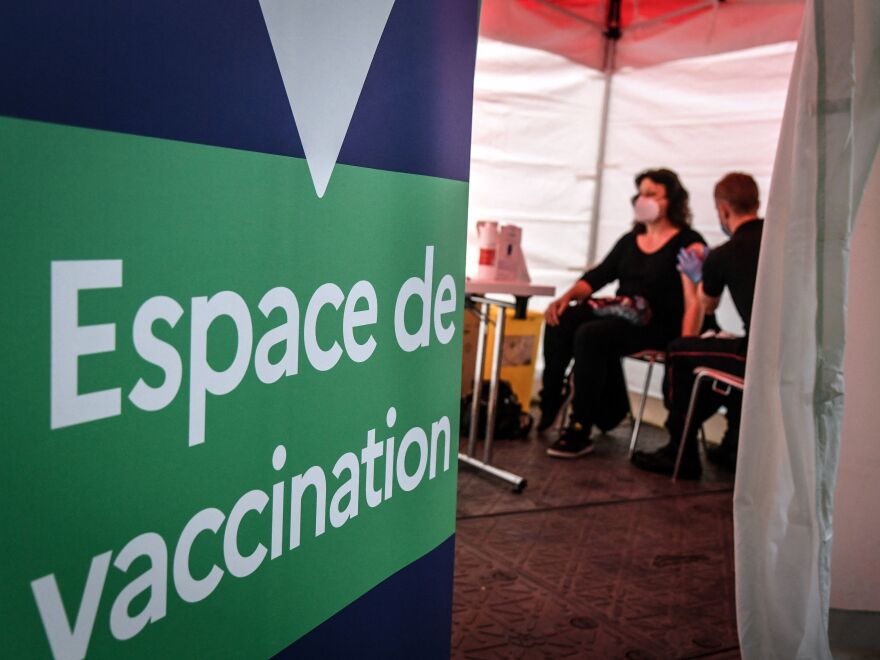The European Union and Pfizer-BioNTech have signed a deal for up to 1.8 billion doses of the COVID-19 vaccine. The bloc's biggest contract to date would cover its entire population, marking a significant ramp up in its fight against the coronavirus.
EU Commission President Ursula von der Leyen announced the deal in a tweet, writing it is for a " for guaranteed 900 million doses (+900 million options)."
Happy to announce that @EU_Commission has just approved a contract for guaranteed 900 million doses (+900 million options) with @BioNTech_Group @Pfizer for 2021-2023.
— Ursula von der Leyen (@vonderleyen) May 8, 2021
Other contracts and other vaccine technologies will follow.
Von der Leyen says other contracts and vaccines are coming for the 27-member bloc with a population of around 450 million.
The enormous Pfizer-BioNTech contract for the two-dose shot would help cover future unknowns including whether a booster shot will be required and what will happen with circulating variants.
The agreement calls for vaccine production to happen within the EU. Delivery will likely extend into 2023.
Last month, the commission announced 250 million Pfizer-BioNTech doses would be delivered by June. The EU's executive arm approved use of the vaccine late last year after the European Medicines Agency, gave its authorization.
The EU is distributing vaccines from a half-dozen companies. Other vaccines remain in development. Some 160 million doses have been administered, with a quarter of the population already vaccinated.
But the virus is still spreading. France, Italy and Spain are currently reporting the most COVID-19 cases. In its bid to contain transmission, the EU is aiming to get 70% of adults vaccinated.
The Pfizer-BioNTech deal underscores confidence in the vaccine. For its part, the Oxford-AstraZeneca vaccine has had halting rollout in the EU, with delivery delays and warnings about rare blood clots occurring in some recipients.
In the U.S., approximately 170 million Pfizer-BioNTech vaccines have been delivered, according to the Centers for Disease Control and Prevention, with nearly 140 million shots administered. Three vaccines are authorized for emergency use and nearly 60% of the adult population has gotten at least one shot.
The Pfizer-BioNTech vaccine was the first approved in the U.S. in December when federal officials granted emergency use authorization.
Now the U.S.-based Pfizer and its German partner BioNTech are requesting full approval in the U.S. for people 16 and older, a process that involves more rigorous oversight, including providing follow-up data six months after vaccinations.
The vaccine maker is also seeking emergency use authorization in the U.S. to include children 12 to 15 years old.
Reporter Teri Schultz contributed to this report from Brussels.
Copyright 2021 NPR. To see more, visit https://www.npr.org. 9(MDAyNDY5ODMwMDEyMjg3NjMzMTE1ZjE2MA001))





